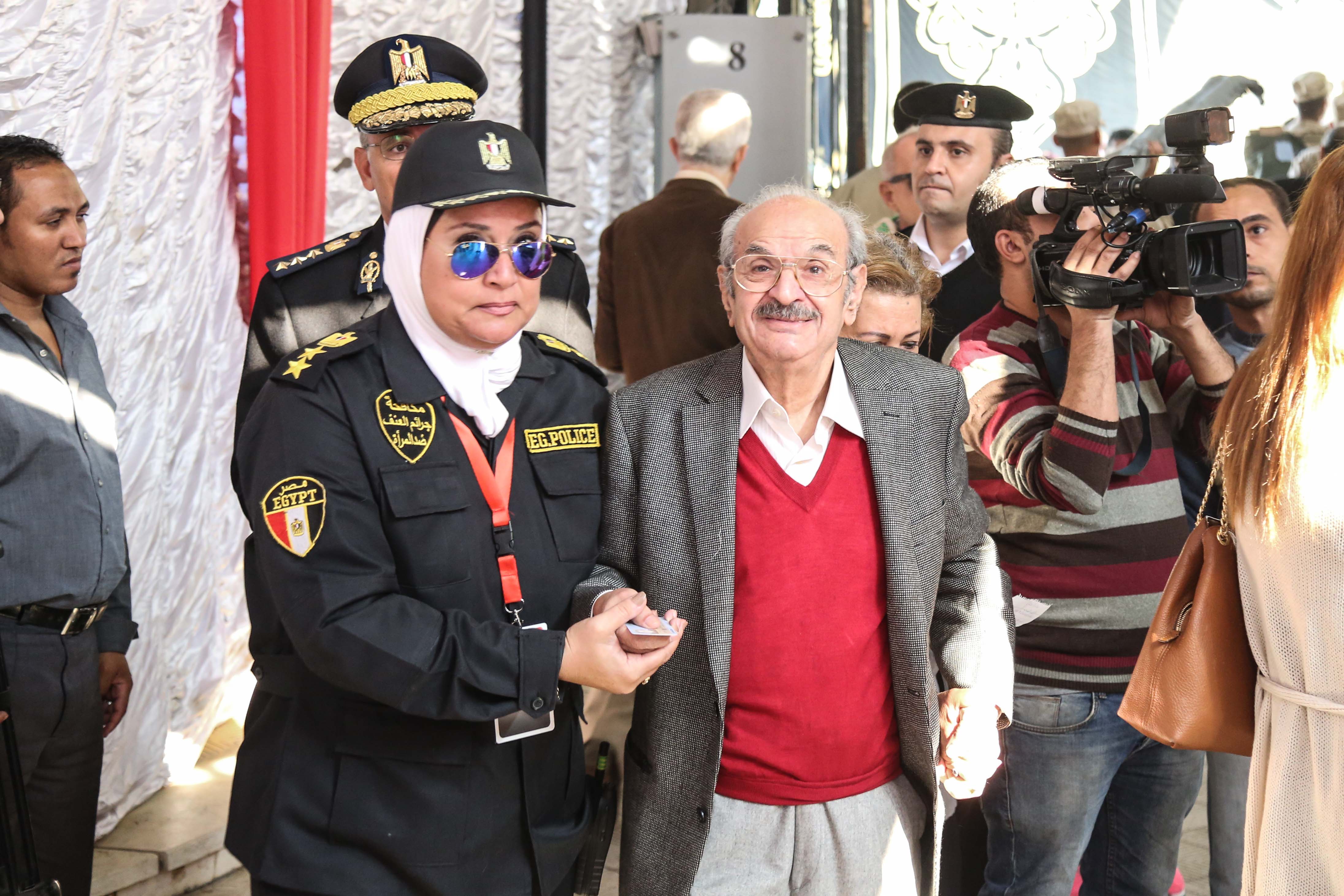Latest NEWS
- Aswat Masriya, the last word
- Roundup of Egypt's press headlines on March 15, 2017
- Roundup of Egypt's press headlines on March 14, 2017
- Former Egyptian President Hosni Mubarak to be released: lawyer
- Roundup of Egypt's press headlines on March 13, 2017
- Egypt's capital set to grow by half a million in 2017
- Egypt's wheat reserves to double with start of harvest -supply min
- Roundup of Egypt's press headlines on March 12, 2017
Egypt's parliamentary candidates observe 24 hours of electoral silence

Voting inside Egypt in the second and last phase of the parliamentary elections poll kicks off on Sunday, Nov. 22, 2015. ASWAT MASRIYA/Mohamed Al-Rai
CAIRO, Nov. 29 (Aswat Masriya) - Pre-election campaign silence began Sunday, ahead of run-offs in the second and last phase of parliamentary elections where 213 individual seats are up for grabs.
Egyptians abroad will head to the polls on Monday and Tuesday, when elections inside Egypt will begin on the first of two days of polling.
The run-offs in 99 constituencies and will see 426 candidates compete over the remaining seats.
Only nine candidates running for individual seats came out triumphant in the first round of polling in the second phase where 222 seats were contested.
Individual seat candidates or coalition lists must secure 50 percent plus one votes to win seats.
The incoming parliament will potentially have the highest female representation in Egypt's parliamentary history.
Women candidates have already secured 61 seats, with a great boost from a quota imposed by law on the electoral lists system. The female representation in the four lists, as required by law, has given women a total 56 seats so far, nearly half of all seats won through electoral lists.
Additionally, five women won seats contested through the individual seat system, and in the final run-off in the next few days, 18 women will be competing for individual seats.
Egyptian women were given the right to run for parliament in 1956, making them the first to be granted suffrage rights in the Arab world.
In the last elected parliament in 2012, the quota for women was lifted and female representation in parliament was less than 2 percent despite a record number of candidates that exceeded 900.
The Egyptian Centre for Women's Rights said that based on the preliminary results from the second phase, women are competing "fiercely" in the poll, despite their limited resources compared to men.
Egypt's unicameral House of Representatives is made up of 568 elected representatives, of which 120 are chosen through coalition or party lists, and 28 appointed by the president, totaling 596.
The "For the Love of Egypt" coalition has swept all 120 seats allocated to the lists system in the legislature.The coalition is the brainchild of former military intelligence general Sameh Seif Elyazal, who openly seeks to limit the powers of parliament.
Since the start of the parliamentary elections, the polling has been marked by voter apathy and low turnout, with headlines across major international news services noting it.
Voter turnout in the second round was, however, higher than the first, jumping from 26.56 in the first phase to 29.83 percent in the second.
Even in polls abroad, the second phase had a higher turnout than the first, with over 37,100 voters turning up, an increase of about 22 percent from the first phase, when just over 30,000 cast their votes.
The parliamentary elections were originally scheduled for earlier this year, with the two phases set to be held in late March and late April.
They were postponed when the Supreme Constitutional Court ruled in March against the constitutionality of an article in the constituency law, which was issued by President Abdel Fattah al-Sisi.
The house elections mark the final phase of a "roadmap to democracy" which then-defence minister Sisi announced to the nation in July 2013, following the military ouster of Egypt's first democratically-elected President Mursi after protests against his rule.










